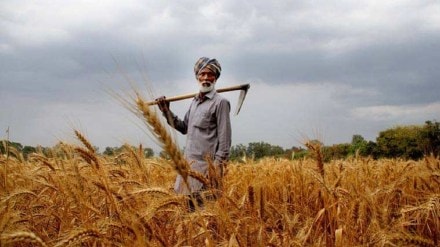To expand the outreach of the electronic – national agriculture market (e-NAM), the Union agriculture ministry has urged the state governments to relax norms including allowing traders from outside their states to buy and sell commodities without bank guarantee, provisioning of unified license for seamless statewide trade access and procurement at farm gate.
“Bank guarantee by traders buying commodities from outside the state was introduced as a safety net, but with the facility of online payment before the goods leave the mandi yard, it has become redundant,” an agriculture ministry official told FE. The official added that traders are not inclined to block the sum of money as bank guarantee as per the current practice prior to actual sales.
Following a recent meeting to expand e-NAM footprints with the state government officials, the ministry has initiated several steps to change the pan-India digital platform facilitating only trade within the agricultural produce market committee (APMC) mandis, to include procurement and disposal of commodities by government agencies, inclusion of warehouses, cold-storages and silos as market years and provisioning of trade of inputs, machineries and other valued-added services.
The official said under the price stabilisation initiative, in the last few weeks the National Cooperative Consumers Federation (NCCF) and farmers’ cooperative Nafed have sold 10,000 tonne of onion on e-NAM platform from Maharashtra from their buffer stock to the purchasers in states including Andhra Pradesh, Haryana, Jharkhand, Punjab, Odisha, and Uttarakhand through transparent price discovery through bidding.
The ministry has also urged states to adopt best practices such unified license for seamless statewide trade (Uttar Pradesh in case of potato), declaring warehouses, silos and cold storages as sub-market yards (Andhra Pradesh and Telangana) and generating auto gate pass using app for transportation of commodities by traders to outside (Madhya Pradesh).
The official said while the volume of inter-mandi trade is still a small portion of total turnover of e-NAM at Rs 24,717 crore in April-August (2023-24), it indicates a gradual shift to the digital platform, being used for better price discovery by the farmers. The digital platform was launched in April 2016.
In the April-September quarter of the current fiscal, there has been a 300% spike in inter-mandi trade (within the state) on e-NAM at Rs 593 crore compared to the same period previous fiscal. In terms of inter-state trade which was not happening a year ago, it has increased to Rs 549 crore in the current fiscal.
Since the beginning of the year, the inter-state trade using e-NAM platform on commodities with farmers from Uttar Pradesh, Kashmir, Maharashtra, Rajasthan and Uttarakhand selling commodities such as potato, apples, mustard, ragi, silk cocoon, chana, soyabean and jeera, to buyers in Kerala, Odisha, Jharkhand, Madhya Pradesh and Tamil Nadu,
At present, there are three conditions – unified state license, single point levy of market fee and provision of electronic trading as a mode of price discovery, for states to join the e-NAM. Officials said states are still reluctant to carry out reforms in their APMC act to integrate into the national platform.
At present, 1361 APMCs had been integrated with e-NAM covering 27 states and union territories for allowing farmers to sell their produce on pan India platform. The agriculture ministry has approved integration of 25 new mandis – Maharashtra (15), Jammu and Kashmir (6) and Uttarakhand (4) into the platform.
Also, 17.96 million farmers, 3145 FPOs, 0.24 million traders and around 0.1 million commission agents are registered with e-NAM where 209 commodities – foodgrain, oilseeds, spices, fruits and vegetables are traded on the platform.
According to the agriculture ministry, since its launch seven years back, Rs. 2.79 trillion worth of trade has been recorded on e-NAM platform.
Still this trade on e-NAM is much less than the total trade of agricultural commodities, excluding milk and marine products in the country estimated at around Rs 6 trillion
